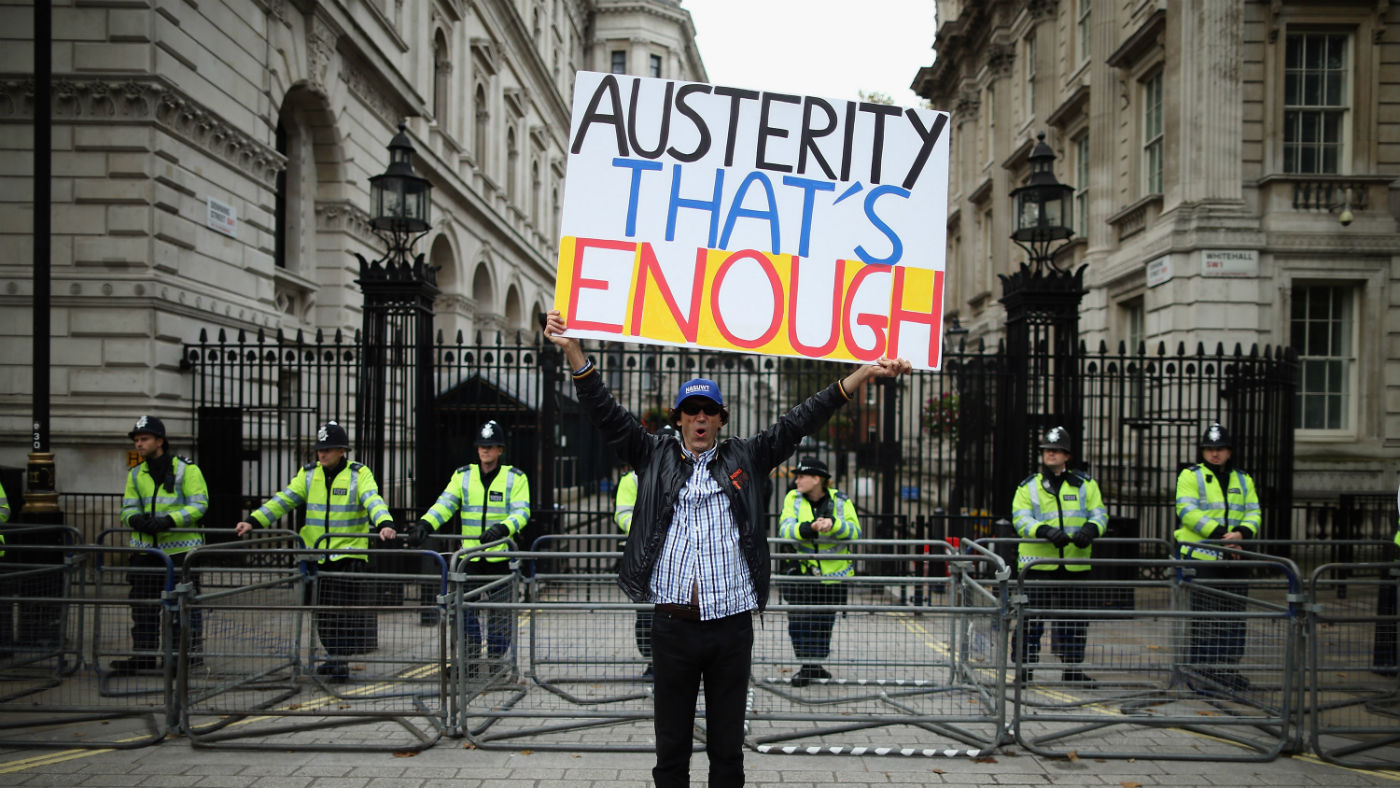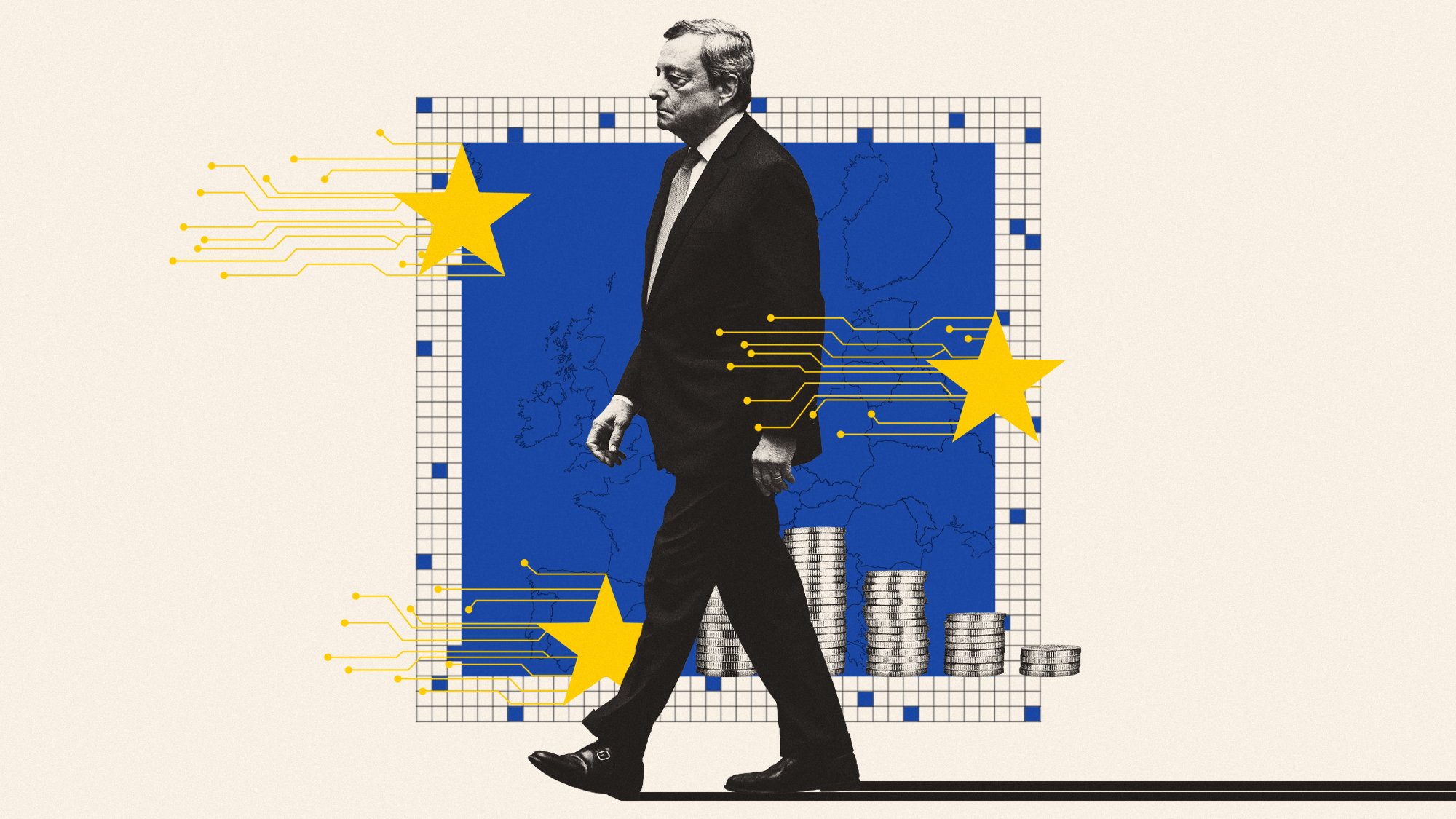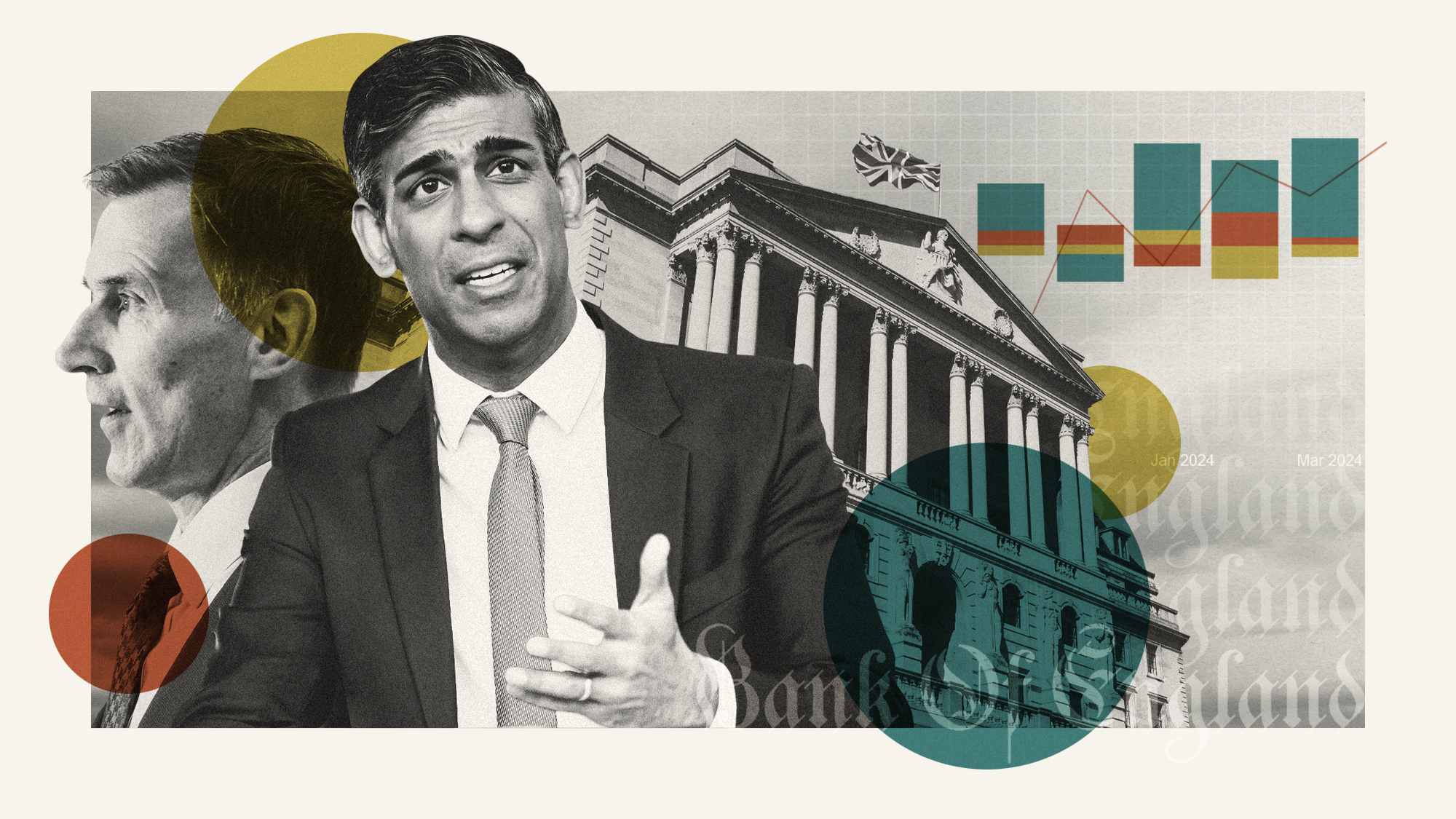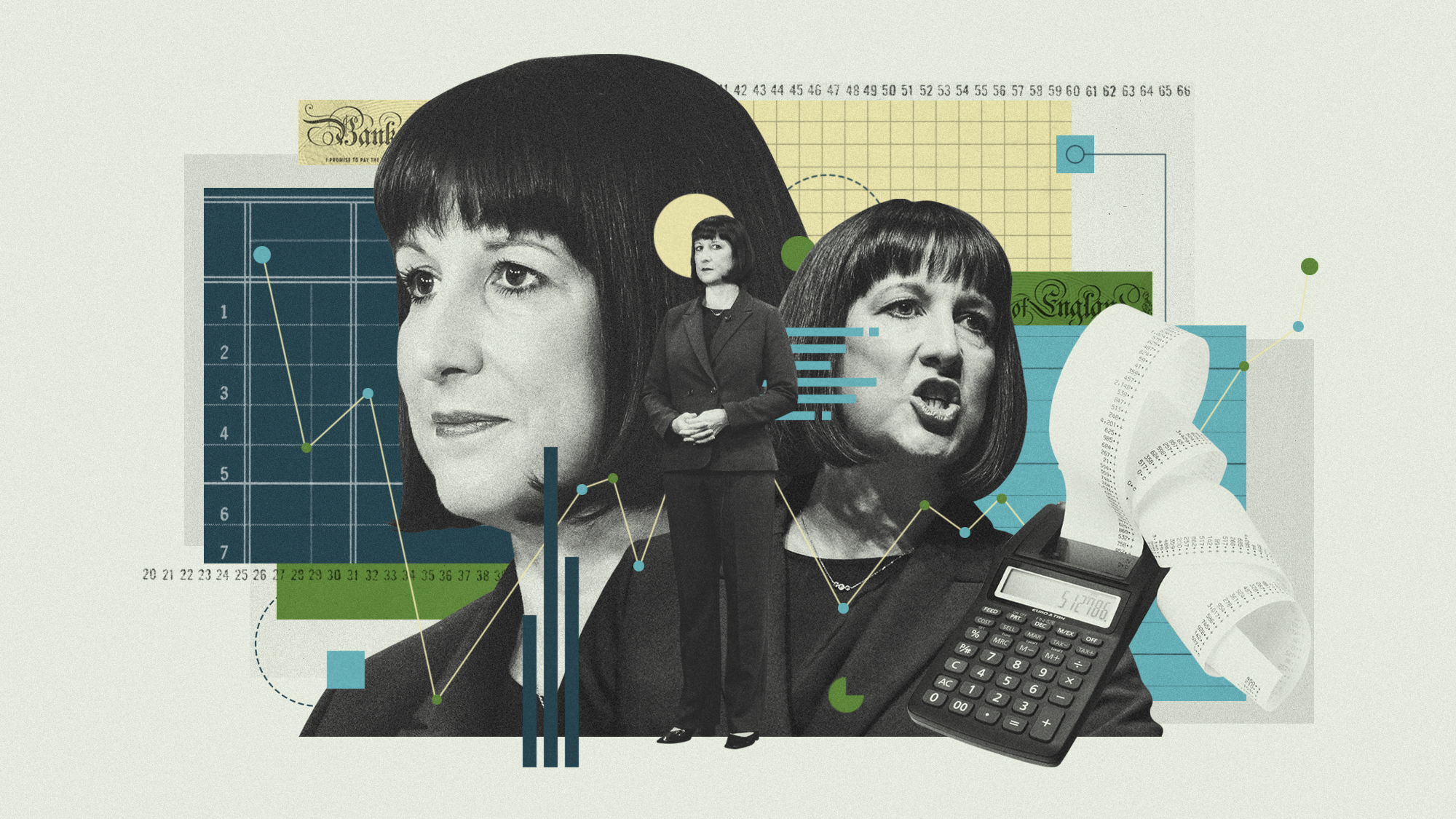Is the UK headed for recession?
Economy could face its first quarterly contraction since 2012 after uncertainty over Brexit causes sharp slowdown in manufacturing

A free daily email with the biggest news stories of the day – and the best features from TheWeek.com
You are now subscribed
Your newsletter sign-up was successful
The UK economy could be headed for its first quarterly contraction since 2012 amid growing fears continued uncertainty around Brexit might push Britain into recession.
Official data revealed a sharp slowdown in manufacturing in April which saw Britain’s economy shrink by 0.4% that month, following a 0.1% contraction in March.
CNN Business says the data was “even more dire than economists had expected”. Factory output plunged 3.9% while car production fell 24%, the biggest monthly decline since records began, as manufacturers were unable to reverse closures planned to coincide with Britain’s expected departure from the EU and carmakers idled factories ahead of the original 29 March Brexit deadline.
The Week
Escape your echo chamber. Get the facts behind the news, plus analysis from multiple perspectives.

Sign up for The Week's Free Newsletters
From our morning news briefing to a weekly Good News Newsletter, get the best of The Week delivered directly to your inbox.
From our morning news briefing to a weekly Good News Newsletter, get the best of The Week delivered directly to your inbox.
Three years after the Brexit referendum, UK-based companies still have no idea what their future terms of trade will be with the European Union, which accounts for about half of British goods exports. Recent surveys suggest EU customers are taking their business elsewhere while data covering the services, manufacturing and construction sectors for May “reinforce the conclusion that the UK economy is grinding to a halt”, says CNN.
Reuters says the latest data “confirm the economy is slowing after getting a bigger-than-expected boost in the first three months of 2019 from businesses stockpiling before a Brexit that never came”.
Samuel Tombs, chief UK economist at Pantheon Macroeconomics, said: “Q2 GDP now looks set to be awful — we’re revising down our forecast for quarter-on-quarter growth to zero from 0.2%.
Meanwhile, respected think tank NIESR has warned that the UK economy may shrink by 0.2% in the current quarter after fears that there has not been a “meaningful” recovery in May.
A free daily email with the biggest news stories of the day – and the best features from TheWeek.com
That would put Britain half-way into “a Brexit-induced recession” says The Guardian.
Reuters also says May’s Purchasing Managers’ Index (PMI) surveys “pointed to the economy being close to stagnation”, but the news agency noted that “they were similarly gloomy in the first quarter when official data turned out strong despite business concerns about Brexit”.
“In truth, it is not hard to work out what has happened. The economy was prepared for our departure from the EU on 29 March, and has been damaged by Parliament’s decision to postpone that,” writes Matthew Lynn in The Spectator.
He argues that with stockpiling being unwound, uncertainty being prolonged and the EU already moving in far more statist, high-tax direction, “you would have to work pretty hard to come up with a less stable system, and that is hitting confidence and investment”.
Nevertheless sterling still took a hit on Monday as currency traders digested the latest economic figures “which suggest the chance of the UK falling into recession is rising”, says Simon English in the London Evening Standard.
This may mean “the Bank of England could be spurred into cutting interest rates” he writes, with markets pricing in a 30% chance of the Monetary Policy Committee cutting base rates before the end of this year.
With Brexit still undecided combined with ongoing trade friction between the US and China, “the numbers are likely to get worse”, warns 24/7 Wall Street’s Douglas McIntyre.
“If the United Kingdom falls into recession, it is more likely that a tottering EU economy will as well. The United Kingdom remains a key to the region’s economy, even as it splits from its former partners,” he adds.
-
 5 royally funny cartoons about the former prince Andrew’s arrest
5 royally funny cartoons about the former prince Andrew’s arrestCartoons Artists take on falling from grace, kingly manners, and more
-
 The identical twins derailing a French murder trial
The identical twins derailing a French murder trialUnder The Radar Police are unable to tell which suspect’s DNA is on the weapon
-
 Political cartoons for February 21
Political cartoons for February 21Cartoons Saturday’s political cartoons include consequences, secrets, and more
-
 French finances: what’s behind country’s debt problem?
French finances: what’s behind country’s debt problem?The Explainer Political paralysis has led to higher borrowing costs and blocked urgent deficit-reducing reforms to social protection
-
 Why Spain's economy is booming
Why Spain's economy is boomingThe Explainer Immigration, tourism and cheap energy driving best growth figures in Europe
-
 Can the UK avoid the Trump tariff bombshell?
Can the UK avoid the Trump tariff bombshell?Today's Big Question President says UK is 'way out of line' but it may still escape worst of US trade levies
-
 Five years on, can Labour's reset fix Brexit?
Five years on, can Labour's reset fix Brexit?Today's Big Question Keir Starmer's revised deal could end up a 'messy' compromise that 'fails to satisfy anyone'
-
 'Super Mario' to the rescue: can Draghi fix Europe's economy?
'Super Mario' to the rescue: can Draghi fix Europe's economy?Today's Big Question Former central bank boss calls for more innovation and investment – but faces 'too many moving parts for a straightforward fix'
-
 Is the UK economy returning to normal?
Is the UK economy returning to normal?Today's Big Question Tories claim UK has 'turned a corner' while Labour accuses government of 'gaslighting' public
-
 Why au pairs might become a thing of the past
Why au pairs might become a thing of the pastUnder The Radar Brexit and wage ruling are threatening the 'mutually beneficial arrangement'
-
 Securonomics: what is Rachel Reeves' economic plan and will it work?
Securonomics: what is Rachel Reeves' economic plan and will it work?The Explainer Focus on economic security and the resilience of industry in an uncertain world is 'key to growth', say Labour